How the United States' Terrorist Designation of the Houthis Could Hurt Yemeni Civilians
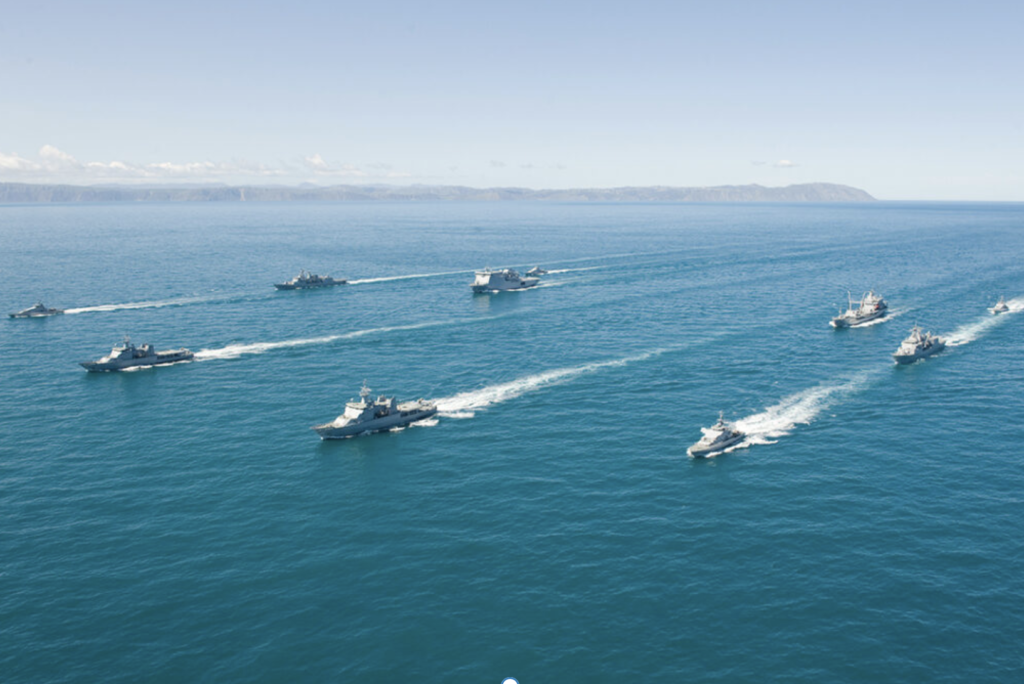
By: Menal Elmaliki / Arab America Contributing Writer
Houthi’s Attacks on Ships
Advocates say that America’s decision to designate the Houthis as a global terrorist group will worsen the already dire humanitarian crisis in Yemen. This will come after Biden had lifted the 2 terrorist designations against Houthis imposed by the US former President Donald Trump at the start of his Presidency in 2021. At that time, Secretary of State Antony Blinken said the lift came in “recognition of the dire humanitarian situation in Yemen.”
The current decision of the Biden’s administration to re-list the Houthis as a terrorist group is backhanded and some are calling it detrimental. The White House National Security Advisor Jake Sullivan had stated that the designation is meant to hold the Houthis accountable for their actions as well as to be used as a bargaining tool to try and get Houthis to cease their attacks in the Red Sea and Gulf of Aden. Sullivan states, “If the Houthis cease their attacks in the Red Sea and Gulf of Aden, the United States will immediately reevaluate this designation.”
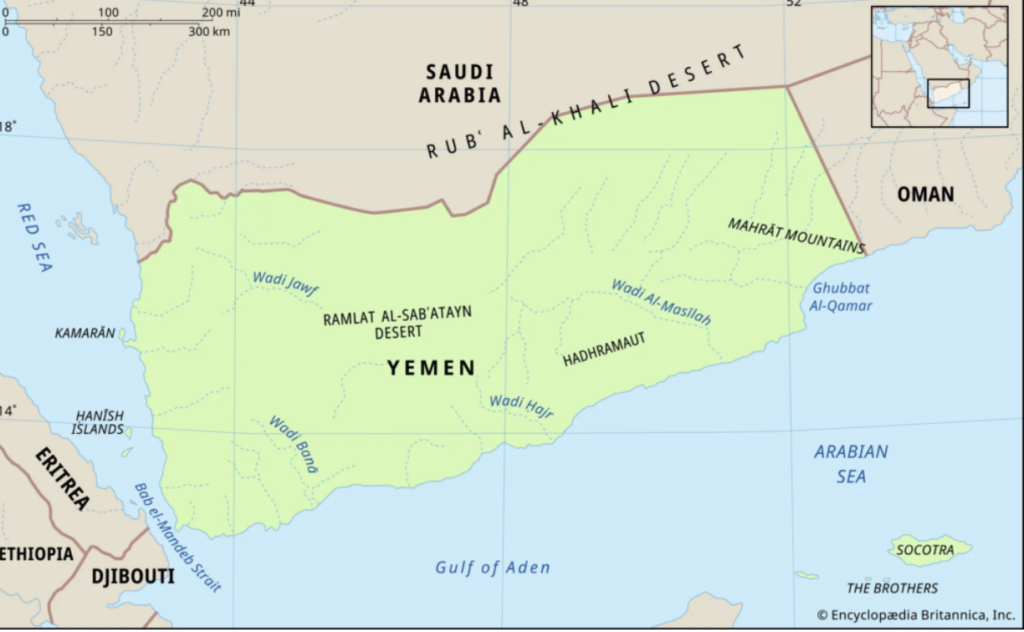
The Designation
Biden’s decision to add Houthis back to the list 3 years later comes after a series of relentless Houthi attacks on ships which have interrupted global trade and escalated tensions in the region. The Houthis have forced shipping companies to suspend transit through the Red Sea and have effectively rerouted a significant portion of global trade by forcing freight companies to sail around Africa.
The Houthi attacks on vessels began shortly after the War in Gaza with Houthis threatening to ruin Israel’s economy by targeting ships that are Israeli-owned, flagged, or operated. Since October, their attacks on ships have escalated and will continue unless Israel lifts its unlawful blockade of Gaza.
The last straw was the U.S.’s second attempt to disrupt the Houthis attacks on commercial vessels traveling along the arterial trade route off Yemen’s coast. The U.S. had already formed the 10-national coalition and had sent strikes on Houthi military operational sites. Despite these efforts and pressure, the Houthis are determined and eager, hopeful that these attacks will put pressure on the Israeli government to stop its bombing of Gaza and to allow humanitarian aid to enter.
Biden’s Designation is different from Trump’s
The administration’s decision to categorize Houthis as a “Specially Designated Global Terrorist” (SDGT) was made to cut off Houthi’s funding and weapons. This designation specifically focuses on the finances of the group or individuals, restricting their access to international markets by freezing any assets in the US and restricting access to funds from abroad. Under this designation, American citizens are prohibited from having any financial dealings with them and it is a serious crime to provide any support to this rebel group.
This is unlike the Trump administration which had listed Houthis as FTO, Foreign Terrorist Organization, which “includes stricter prohibitions on providing material support to those on the list and would mean automatic travel bans.” Trump’s sanctions have disrupted flows of food, fuel, and other commodities into Yemen. U.S. officials have stated that the SDGT designation would make it easier to exempt humanitarian goods from sanctions.

Yemen’s Dire Humanitarian Crisis
A repetition in history, advocates, the United Nations, other humanitarian groups, and U.S. lawmakers have warned that reinstating Houthis as a “terrorist group,” could “interrupt the flow of aid to the country,” just like it had 3 years prior. Political analysts and human rights advocates are not only warning that America’s decision will only hurt Yemeni civilians but it also won’t put an end to Houthi attacks. One of the advocates, Dr. Jumaan, president of the Yemeni Relief and Reconstruction Foundation, states,
“The U.S. designation of the Ansar-Allah, also known as Houthis as a specially designated Global Terrorist is raising concerns about its impact on the peace process and the dire humanitarian situation in Yemen. With this designation, there is a heightened risk that the peace process could be derailed, as it may further estrange the Houthi and disrupt diplomatic efforts. This, in turn, could lead to the continuation of blockades at vital entry points such as airports, and seaports, exacerbating the already fragile Yemeni economy.
Moreover, public servants, who have been awaiting their salaries since 2016 with the start of the peace process, now face further uncertainty and economic hardship. Additionally, the suspension of food distribution by the World Food Programme (WFP) in North Yemen, affecting 9.5 million people, compounds the severe food insecurity crisis in a country where over 17 million people are already at crisis and emergency levels of food security. These combined factors significantly heighten the risk of famine in Yemen, underscoring the urgency of addressing the complex humanitarian and political challenges facing Yemen.”
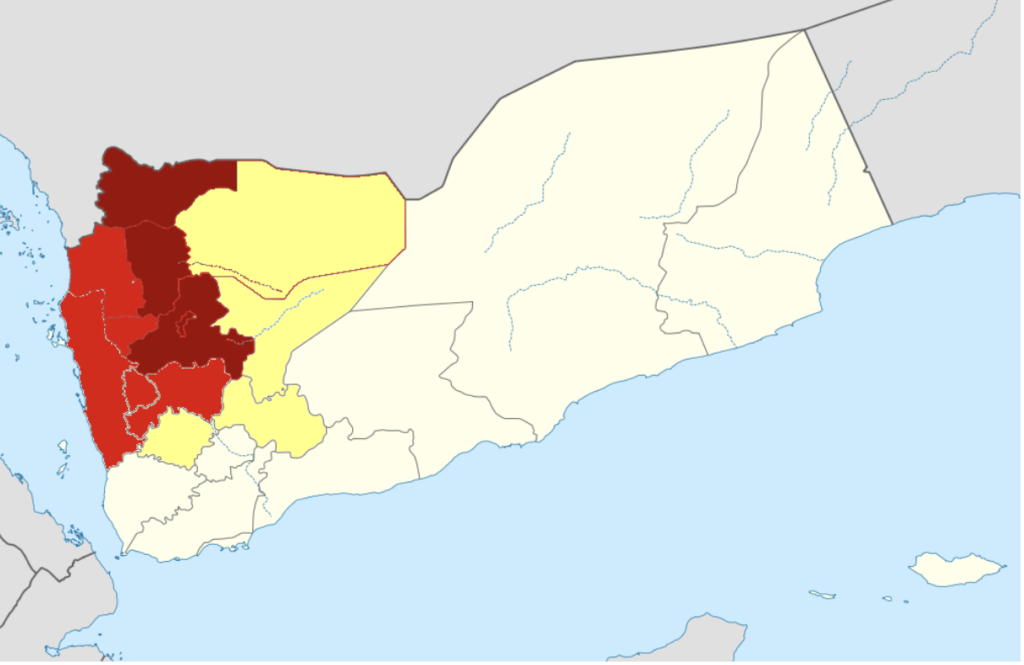
According to the U.N., more than half of the Yemeni population of about 18.2 million people needs humanitarian assistance. Yemen remains the largest humanitarian crisis in the world according to Human Rights Watch, with two-thirds of its population suffering from hunger and needing food assistance and supplies. Many of whom are already suffering from an economic crisis and rising costs. The conflict has destroyed critical infrastructure in Yemen and has caused 80% of the population to struggle to access food, drink safe water, and acquire adequate health services.
The re-listing of Houthis as terrorists has devastating consequences for the ordinary people in Yemen who are caught in the crossfire, they suffer from the policies of the international community and the domestic policies of the Houthis. Anastasia Moran, the International Rescue Committee’s associate director for U.S. advocacy, warned that the designation would have a “serious chilling effect” on Yemen’s food supply with 75% of the population living in areas controlled by Houthis.
Yemen is already in a fragile state having dealt with a decades-long war proxy war between Iran and Saudi Arabia. The country has also been at war with the United Arab Emirates. Since March 2015, UAE and Saudi Arabia have led a military coalition against the Houthis rebel group which had taken over Sanaa, Yemen’s capital. In 2020, the fighting in northern Yemen, toward the Marib governorate displaced thousands of Yemenis. The displaced Yemenis in the north also faced a humanitarian crisis and increased risk of Covid 19. Meanwhile, in the South of Yemen, the UAE withdrew most of its troops in 2019 and continued its air operations and support of Yemen’s local forces and the recognized Yemeni government.
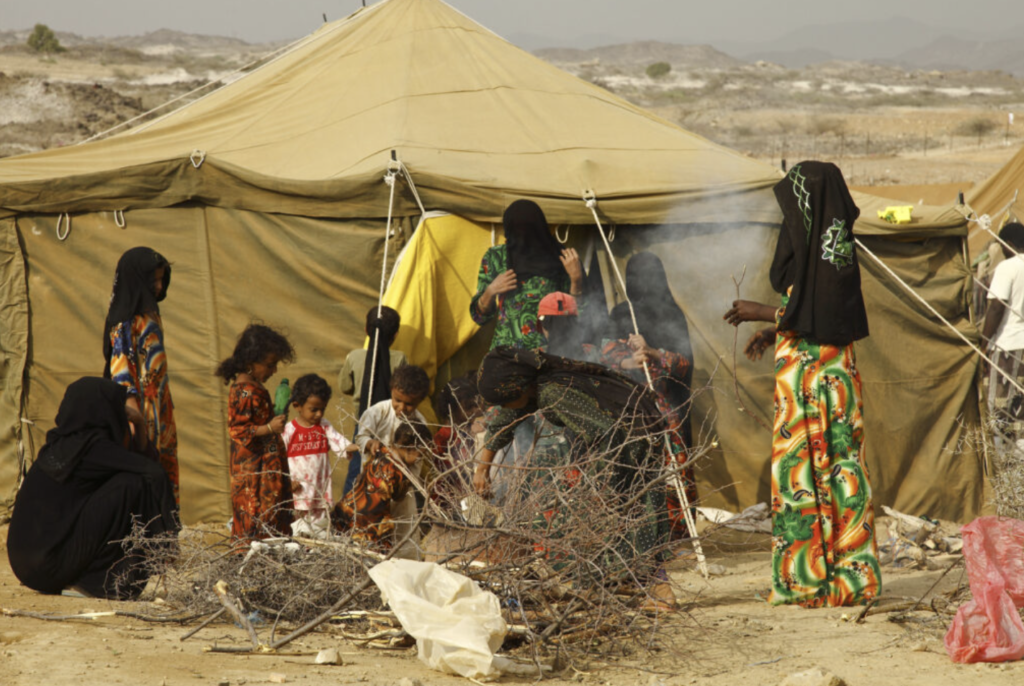
Civilians, having suffered the most, must deal with damaged infrastructure, lack of fuel, lack of basic services, abusive local security forces, a weak state, and a fragmented governance.” According to Human Rights Watch, of the roughly 80 percent of Yemen’s population that requires humanitarian aid, 12 million are children. Unicef warned that roughly about 2.3 million children under the age of 5 suffer from acute malnutrition.
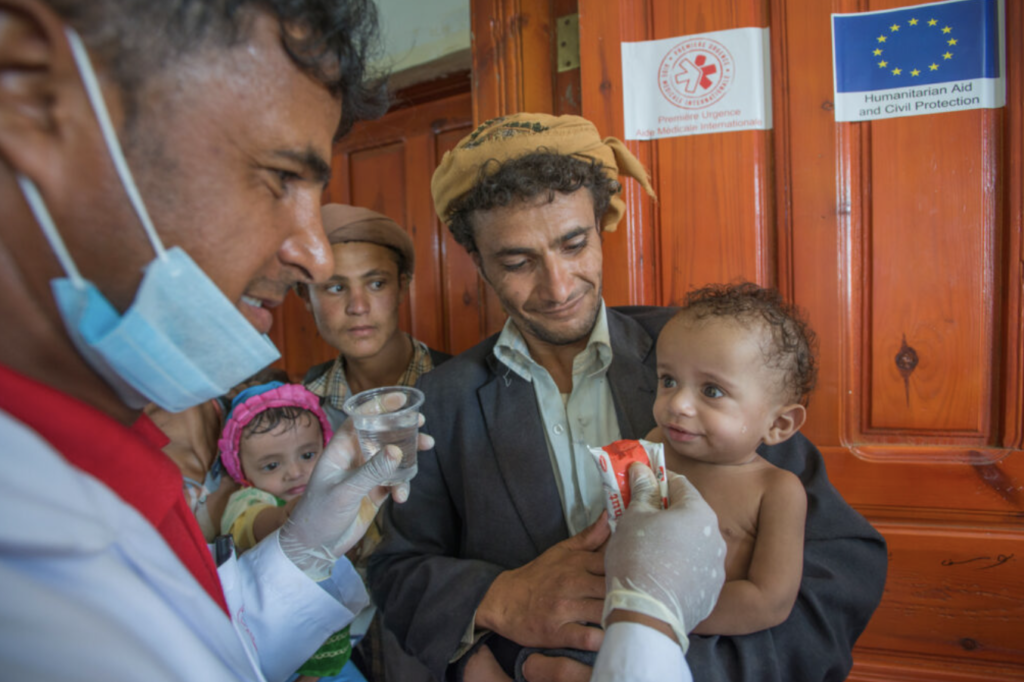
Yemen’s economy has also suffered from years of this conflict, millions of Yemenis have lost their income “due to business closures,” and those working in the public sector “have not received their full salaries,” not to mention that millions of Yemeni civilians depend on humanitarian aid which is now at the risk of being cut. According to the Yemen Data Project, the Saudi-led coalition focus has sent between 20,000- 60,000 airstrikes since 2015, and nearly a third of the airstrikes have hit civilians, damaging homes, hospitals, weddings, schools, school buses, farms, grocery stores, markets mosques, bridges, water wells, and civilians factories. Both the Houthi forces and the Saudi-led coalition have discriminately sent fire mortars, rockets, and missiles into densely populated areas, Marib, Taizz, and Hodeidah.
Scott Paul who is associate director of peace and security at Oxfam America, has stated that “the Biden administration is playing with fire, and we call on them to avoid this designation immediately and prioritise the lives of Yemenis now.”
Check out our Blog here!









